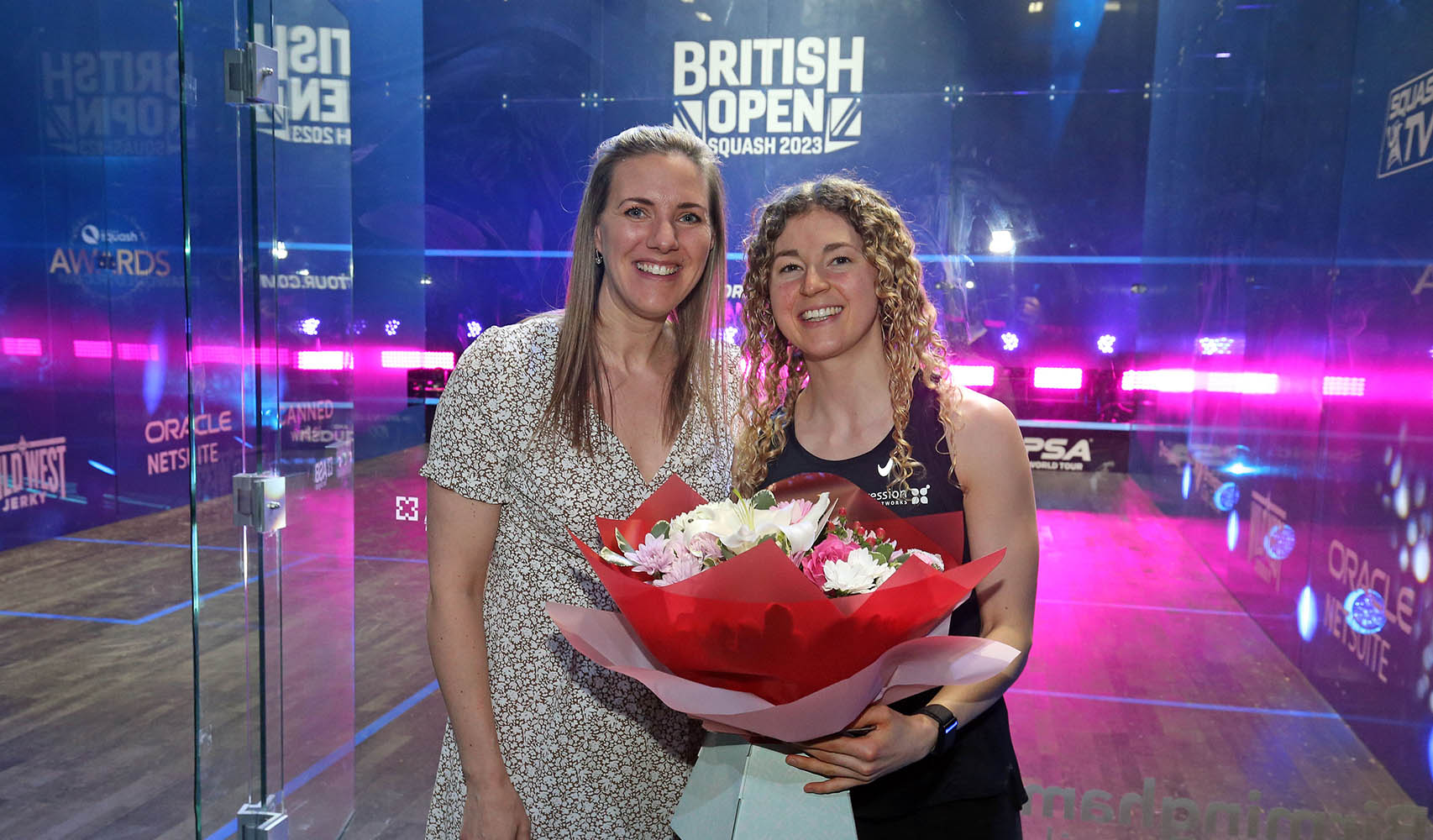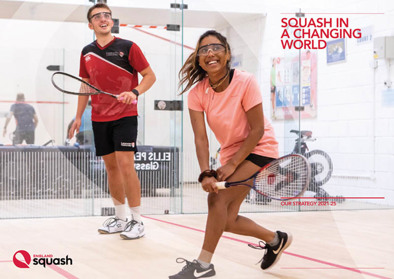
It was the match that inducted Gina Kennedy into the history books. And quite deservedly, that match has been voted by the England Squash community as their Moment of the Year.
When Kennedy beat Hollie Naughton 3-1 in the final of the women’s singles at last year’s Commonwealth Games, she became the first Englishwoman to achieve such a feat.
At the time, it was a head-spinning experience, a tidal wave of joy, years of hard work rewarded in a flash of elation.
Eight months on and looking back on it all, Kennedy is more reflective as she looks back on the magnitude of that victory – and all the delights and pressures it brought.
Gina said:
“I still can’t believe that I’m the first woman with the talent that we’ve had come through England Squash with SJ [Sarah-Jane Perry], Laura Massaro, Alison Waters."
"It’s just been such a strong group of women so the fact that I’m the first one to win gold is so special.
“The Commonwealth Games is something like no other event on tour. You’re playing to get medals for your country so it was always going to be the pinnacle of my career so far. It was a relief and amazement when I won that match.”
Relief, indeed, because it wasn’t an easy one. Though Kennedy went 2-0 up, Naughton won the third game to set up an intriguing fourth.
At the time when she needed it most, England’s would-be champion found a zen within, winning the first five points on her way to claiming the final game. Kennedy admits she isn’t the best at controlling her nerves, but something within her clicked that day.
“Often when I play on the PSA events I get anxious and nervous and annoyed at myself if things aren’t going my way, but I had Nick Matthew in my corner and he was really good at the game plan and keeping me calm.
“For some reason I managed to thrive in that environment even though the pressure was on me in that match. I managed to settle the nerves.”
There wasn’t much time to celebrate – not in the immediate aftermath, anyway. A radio appearance beckoned at 7am the following day, followed by three doubles matches. Apparently being a Commonwealth champion does not win you a lie-in.
At least there was a heroic return home after the Games finished, as friends welcomed her with banners and her local club, Parkangley, threw a surprise party for her. Car drivers would beep their horns at her in the street and kids would write letters to her and come up to her in shops, telling her she was an inspiration.
But her newfound renown brought with it a set of unique challenges; namely, the nagging tug imposter syndrome.
“You definitely feel a sense of imposter syndrome,” she admits.
“You wonder if people will think: ‘will she do it again? Can she do anything else? Is she a one-hit wonder?’ You’ve got to stay in your own little world and work as hard as you can.
“I really struggled with it after the Commonwealth Games, to be honest. You spend your whole career working towards winning a title like that, and it’s amazing when you do, but there’s still that silly sense of wanting to prove that you deserve that title.
“I had a time after the Commonwealth Games where I was riddled with injury and illness but I still wanted to prove that I was a gold medallist. You move on to the next thing so quickly. You don’t want to be content with winning gold, but you do have to relish the wins.”
Perhaps that’s the thing that defines Kennedy in our conversation: a keen understanding of the need to perpetually strive if she wants to beat the world’s best talents, coupled with an awareness that you have to embrace the moments of success when they come.
Looking ahead to the PSA World Championships, held in Chicago in May, Kennedy says the quarter-finals are the minimum aim. Egypt’s Nour El Sherbini has won six of the last seven titles, and Kennedy knows there is a gap to plug if she is to become just the fourth woman representing England to win at the World Championships. Reaching the latter stages of big tournaments and improving her ranking is the best way to guarantee more time on court with the world’s top talents, she says.
“I’m really looking forward to the Worlds. I know that if I play my squash I can do it. Although it’s the target, I wouldn’t be content to finish in the quarter-finals. You’ve got to be focused from the first day because there can be upsets.”
Find out more about the awards.











 Back
Back





-3.png)

 (2).png)
.png)
-1.png)
.png)
.png)
-1.png)


 (1).png)
.png)

